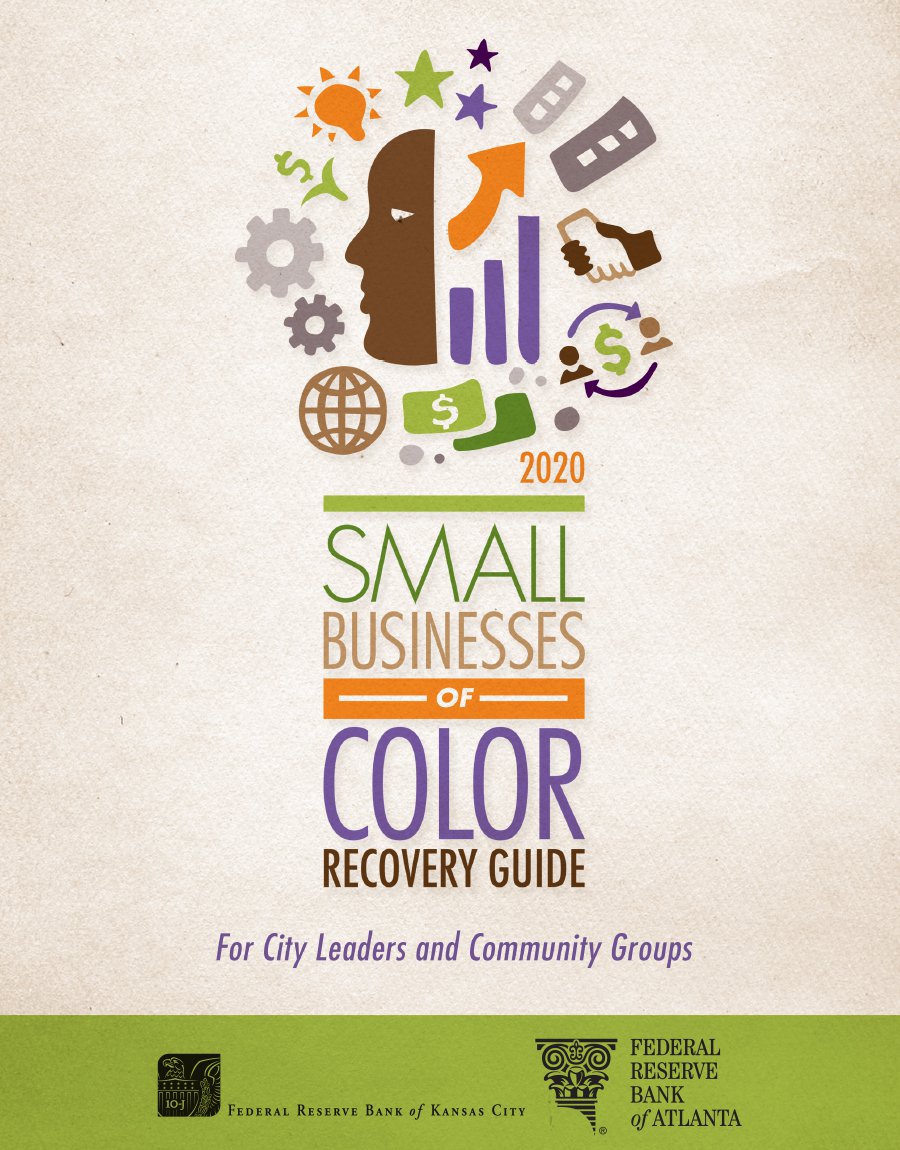As the nation continues to work toward economic equity, and the demographics of the United States continue to change, the necessity of supporting the recovery of Small Businesses of Color (SBOCs) becomes imperative. The purpose of this guide is to help support the recovery of these businesses by providing readers with a range of ideas in the areas of small business credit and capital, education and training, policy recommendations, and community support. The information in this guide was derived from a wide variety of sources, including pre-existing research, insight from a wide range of outreach calls with small business support providers, and insight from a long-form questionnaire, which received responses from 20 organizations that support SBOCs from across the nation.
The guide will cover three major topics. The first will discuss the state of SBOCs before the COVID-19 pandemic to provide a historical context for the challenges these businesses faced. The second will be a series of recommendations for communities that seek to help SBOCs both recover in the short run and thrive in the long run. The final topic will share tools organizations can use to help develop and support programs for SBOCs in their community.
The report concludes that a broad range of national and local actions need to occur to help SBOCs recover. These include improved access to various forms of credit and capital that are designed to meet the specific needs of SBOCs. In addition, new or expanded forms of education and training, better policy solutions and increased community support will need to occur. Expanded support for existing and new small business support providers that support SBOCs also will need to be put in place.
Entrepreneurship ecosystem building must be prioritized during the recovery. Because the challenges faced by SBOCs are holistic and systemic, identifying the local gaps and areas needed to be strengthened in SBOCs local ecosystems is critically important during the recovery. To build the entrepreneurship ecosystem, local stakeholders need to better understand the lived experiences of SBOCs, create local community and network-based strategies, and have a bias toward action, based on the significant effects COVID-19 has had on SBOCs.
Click External Linkhere to receive information on trainings, events and other opportunities related to the guide. Get answers for common questions about recovery communities here.
The views expressed by the authors are their own and do not necessarily reflect those of the Federal Reserve System, its governors, officers or representatives .

